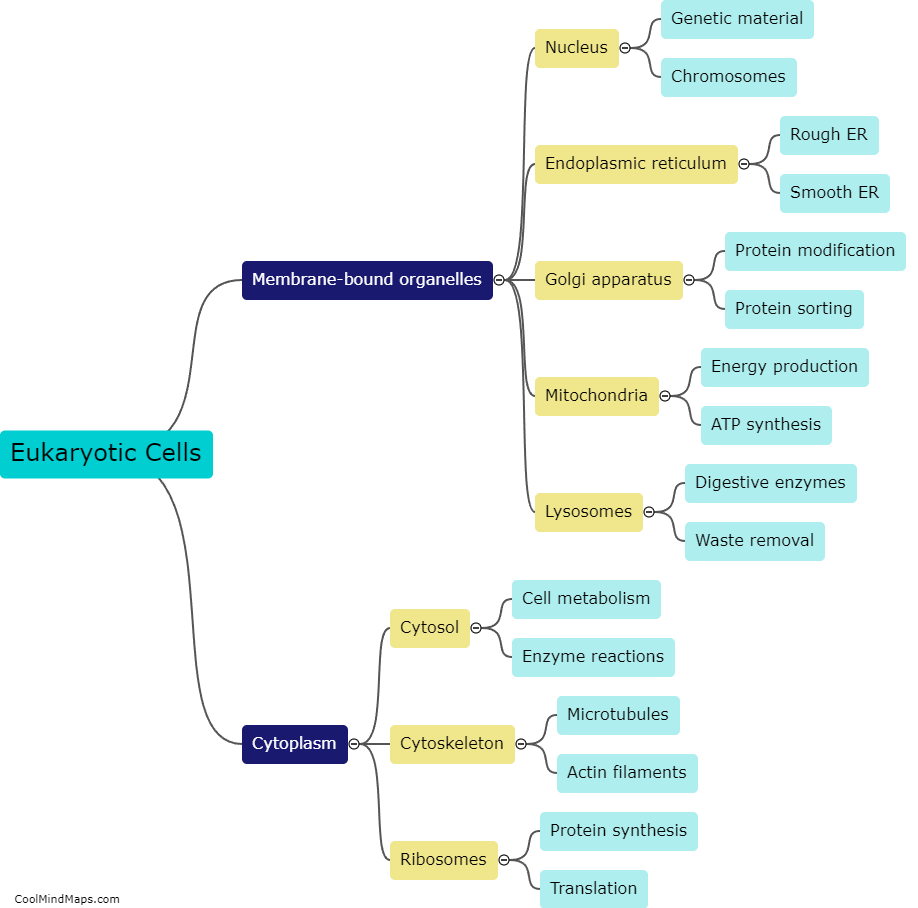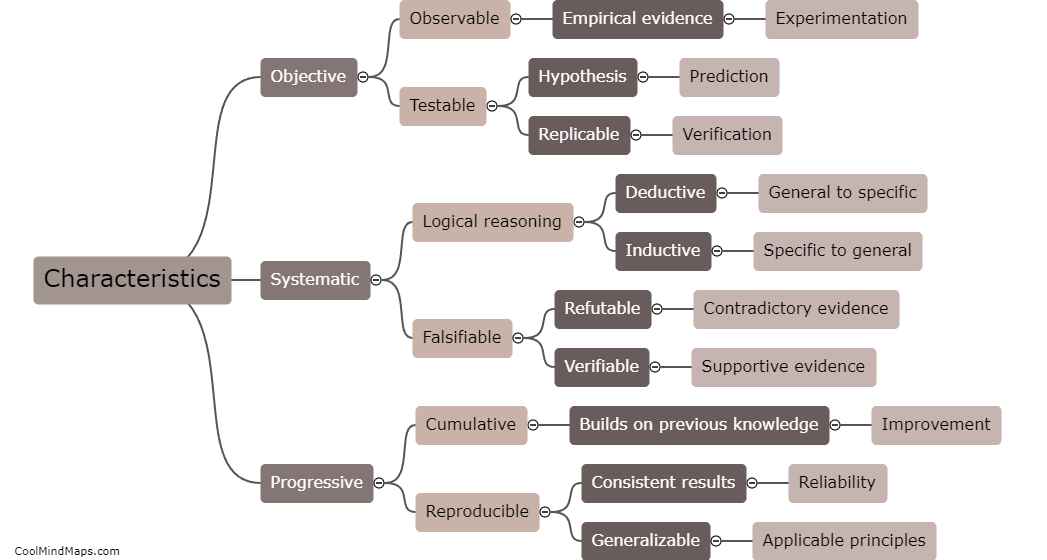What are the characteristics of eukaryotic cells?
Eukaryotic cells are complex cells that possess a distinct, membrane-bound nucleus housing their genetic material. This nucleus is responsible for storing and organizing the cell's DNA. These cells also have other organelles, including mitochondria, endoplasmic reticulum, Golgi apparatus, and lysosomes, which carry out various specialized functions. Eukaryotic cells are typically larger and more structurally advanced compared to prokaryotic cells. They can be found in plants, animals, fungi, and protists, enabling the development of multicellular organisms. Eukaryotes also have a flexible cytoskeleton, allowing them to maintain cell shape and perform various movements.

This mind map was published on 26 October 2023 and has been viewed 82 times.











